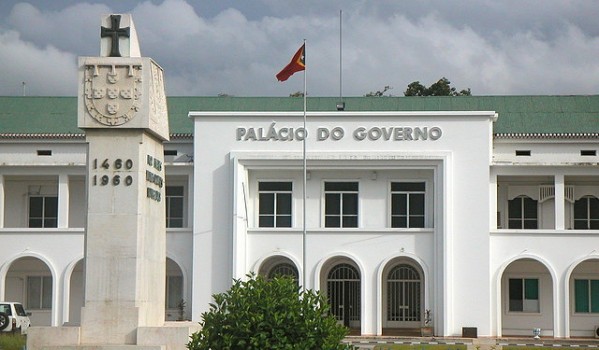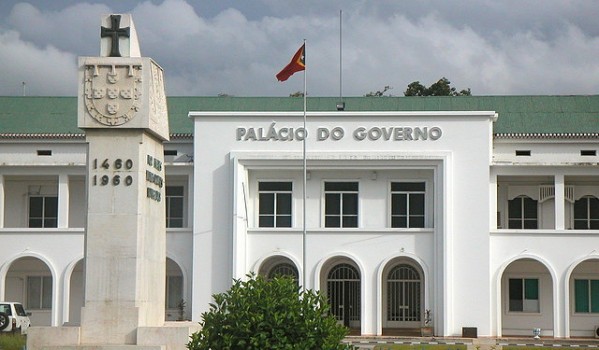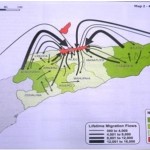
Palácio do Governo de Timor-Leste
Based on several recent incidents and ongoing issues in our country, Fundasaun Mahein is concerned that Government development programs are failing to address the urgent needs of our people. At the same time, we observe that the Rule of Law, rather than applying equally to all citizens, is in danger of being replaced by the “Rule of the Deal”, whereby the Law serves political deal-making rather than principles of equality, justice and fairness. The result of this is that those with access to the corridors of power and influence benefit from State policies, while being free to operate in ways that frequently contravene Timor-Leste’s Laws. On the other hand, ordinary citizens or those without political connections are excluded from decision making and economic benefits, and are quickly punished for illegal actions, the impacts of which are often comparatively minor when compared with the crimes of powerful political actors.
To illustrate these points, this article discusses some recent incidents of law-breaking by “little people” which have received much attention in the media, while locating them within the context of popular marginalisation and frustration with Government programs, and the ongoing deadlock between political elites.
Popular marginalisation and frustration lead to violence
The Cesta Básica (Basic Basket) program is part of the Government’s Economic Recovery plan, and Fundasaun Mahein appreciates that this measure is intended to relieve some of the increased poverty and hunger which have occurred during the State of Emergency. However, the dysfunctional design and implementation of this program has led to widespread frustration among the public, which was starkly illustrated by the burning of Cesta Básica products on 29 November by a community member in Viqueque, who was apparently expressing his anger with both the limited use value of the products themselves, and the failure of the Government to provide for the community’s more urgent needs and the lack of any complaints process.
This act was indeed a crime, and the perpetrator should be punished according to the applicable laws. However, Fundasaun Mahein also believes that these events cannot be viewed in isolation and simply blamed on one individual, but instead must be understood as a symptom of the ongoing marginalisation of much of Timor-Leste’s population, both socio-economically, as well as from the decision making process and the design and implementation of State programs. The combined result of these failures has been that assistance programs and development projects have not only failed to address our people’s urgent needs, but have contributed to widespread frustration among the public, and anger and resentment towards the Government. Moreover, the lack of any effective mechanism for the public to register feedback and complaints regarding these issues has left many feeling that they have no avenue available to express their frustration, other than through violence.
Furthermore, not only does this incident reveal the State’s failure to meet people’s basic needs and promote popular participation in decision making, but the widespread media reporting and rapid punishment of the perpetrator in the Viqueque incident reveals a double-standard in the public discourse around crime and application of the rule of law in this country. It might be obvious to point out, but we believe that the fact that the man who committed this act is from a poor background, and lacks political connections or power, contributed to him being quickly and violently arrested, charged and held in custody. Meanwhile, discussion on social media and on the news has mostly ignored the violence of his arrest and the underlying causes of his actions, focusing instead on the “aggravated” nature of the crime, due to the fact that the destroyed Cesta Básica products were state property.
This incident is far from the only example – indeed, we all know of many other cases of crimes committed by relatively low level people which have resulted in widespread media coverage, along with rapid investigation, arrests and charges, such as the recent capture of the former President of the Civil Service Commission (Komisaun Funsaun Públiku) on suspicion of corruption, or the group of men who recently attacked the First Lady’s car while she was on her way to Mass. However, while we condemn violent acts and corruption, we must also acknowledge the reality that the targeting of the Prime Minster’s wife suggests that this incident is a sign of underlying marginalisation and frustration with the Government, rather than an issue of simple criminality.
Double standard in the application of the Law is not only unjust, but is a security risk
By contrast, we know that many crimes which have been committed by ema bo’ot, including well-known cases of “high level” corruption, have not resulted in rapid investigation or violent arrest, while the accused have often been able to avoid justice, either by leaving the country or somehow escaping conviction. This problem, while by no means unique to Timor-Leste, reveals the double-standard in the application of the rule of law and perception of crime in our State, which is supposedly based on fundamental principles of democracy, human rights and the rule of law. The arbitrary application of the Law and lack of public discussion of this double-standard thus suggest that our state operates under the “rule of the deal”, where the Law serves as a tool for politics and deal-making, rather than a mechanism to ensure justice, equality and fairness. This guarantees that political decisions and state programs continue to be dominated by a minority of interests, namely veterans and political elites, in collusion with their allies in the private sector.
The history of violence and trauma suffered by our people, and the deep effects this has had not only in socio-economic terms, but on people’s psychology and relationships within families and communities, mean that violence has become normalised as a way of resolving problems. This is exacerbated by the fact that many of our leaders have resorted to violent rhetoric or even actual violence when conducting political affairs. Moreover, the fact that they suffer no consequences further illustrates the double-standard at play regarding the question of violence and the Law.
All of this has brought us to the sad situation we now face: a political deadlock for several years, where the “rule of the deal” means that those who are responsible for creating this impasse through an inability to compromise will not suffer the consequences of their actions. Meanwhile, the suffering of our people continues to grow due to paralysed development and assistance programs. Frustration with the political impasse combined with a lack of education, few economic opportunities and a widespread sense that people lack a voice and that violence is an acceptable form of expression are having unfortunate – but predictable – results: acts of violence against representatives or symbols of the State.
Conclusion: prioritising the people’s needs will ensure peace, security and wellbeing
We hope that readers understand that in describing incidents of violence as symptoms of marginalisation, our aim is not to excuse or condone individual criminal actions, but to emphasise that the State’s ongoing failure to create the conditions for people to thrive or promote inclusivity in decision making has produced significant anger and frustration with the Government, which can sadly result in violent outbursts by community members. Popular resentment will continue to grow as long as economic development remains stagnant, and politicians continue to squabble daily in Parliament and in the media. The inability of our political elites to prioritise the people’s interests over their own desire for power thus threatens the security, stability and future of our country, as well as the wellbeing of our people.
On 2 December, 44 Members of Parliament voted to approve in generality the proposed 2021 State Budget, while the State Council and Superior Defence and Security Council approved the extension of the State of Emergency. However, we are concerned about the implications the continued State of Emergency has for our economic development as well as democracy and basic rights, while the proposed 2021 State Budget allocates less than one-fifth of total spending to the fundamental social and economic sectors of health, education, agriculture, water and sanitation, a problem which has persisted for over a decade. Fundasaun Mahein asks these Deputies and the Government to consider this question: do the proposed 2021 State Budget, State of Emergency decree and forthcoming Government programs contain adequate measures to meet our people’s urgent needs and long-term development, thereby reducing popular frustration which can spill over into acts of violence such as those described above?
We fear that failure to address these fundamental problems and overcome the political impasse will inevitably produce further frustration and anger. However, ‘little people’ will continue to suffer legal and social consequences whenever their frustration explodes into violence, while ema bo’ot continue to enjoy their privilege, and evading responsibility for both their actions and their inaction. Therefore, we call on our political elites to respect the Rule of Law while working together to ensure that State policies are designed with the needs of the people in mind, which requires both political will to compromise, and popular participation and inclusion in decision making. Only in this way will we ensure security and prosperity for all our people, while guaranteeing the long-term stability and sustainability of our country.





